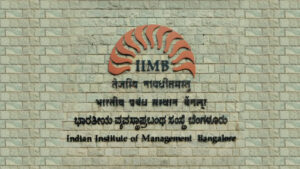10 Things about the Constitution of India that every student must know
3 min read
10 Things about the Constitution of India that is about Historical Roots, Comprehensive Framework, Architects of Democracy, Checks and Balances, Rights with Responsibility, Balancing Continuity and Change, Complex Governance Structure, Guardian of Rights, Social Welfare Blueprint, and Heartbeat of the Constitution. Understanding empowers students to be active citizens, transcending it as more than a legal document India’s living democratic testament.
Table of Contents
1. Historical Backdrop: Seeds of Sovereignty
Dive into the roots of the Indian Constitution, a product of colonial struggles and visionary leaders like Dr. B.R. Ambedkar and Jawaharlal Nehru. Understanding this historical context is vital for appreciating the democratic framework that mirrors India’s diverse landscapes.
2. Lengthiest Written Constitution: Comprehensive Framework
Explore the depth of the Indian Constitution, one of the world’s lengthiest, with 448 articles distributed across 25 parts, supplemented by schedules and amendments. Unraveling its comprehensive nature allows students to recognize the laws governing various facets of public life.
3. Constituent Assembly: Architects of Democracy
Meet the architects of India’s democracy—the Constituent Assembly. Delve into their deliberations and debates, documented in the Constituent Assembly debates, offering invaluable insights into the reasoning behind constitutional provisions.
4. Separation of Powers: Checks and Balances
Understand the doctrine of the separation of powers embedded in the Indian Constitution. This principle ensures checks and balances among the legislature, executive, and judiciary, preventing the concentration of power and fostering accountability a crucial concept for students.
5. Fundamental Rights and Duties: Rights with Responsibility
Discover the unique blend of fundamental rights and duties granted by the Constitution. Balancing rights with responsibilities instills civic consciousness among students, urging them to contribute positively to society while safeguarding their liberties.
6. Amendment Procedure: Balancing Continuity and Change
Uncover the amendment process outlined in the Constitution, allowing for necessary adaptations without compromising core principles. This flexibility showcases the Constitution’s ability to evolve with changing times while upholding its fundamental values.
7. Federalism and Center-State Relations: Complex Governance Structure
Explore India’s federal structure, intricately balancing powers between the Union and State governments. The Constitution allocates authority through different lists, defining spheres of governance and providing students insights into India’s complex administrative machinery.
8. Role of Judiciary: Guardian of Rights
Understand the pivotal role played by the Indian judiciary, particularly the Supreme Court, in upholding the Constitution. Explore the power of judicial review and the judiciary’s role as the guardian of fundamental rights, essential for ensuring justice and constitutional supremacy.
9. Directive Principles of State Policy: Social Welfare Blueprint
Examine the Directive Principles of State Policy, serving as a guide for governance with a focus on socio-economic justice and welfare. While not legally enforceable, they outline the state’s duty to strive towards creating an equitable society.
10. Preamble: Heartbeat of the Constitution
Unravel the significance of the Preamble, encapsulating the spirit and ideals of the Constitution. It serves as a guiding light, embodying justice, liberty, equality, and fraternity fundamental values for students to cherish and uphold.
Understanding of 10 Things about the Constitution of India
A profound grasp of India’s Constitution empowers students to be active and responsible citizens. Beyond a legal document, it stands as a living testament to India’s democratic spirit, fostering a sense of duty, awareness, and engagement with the country’s democratic processes. So how about this article regarding 10 Things about the Constitution of India, if you like this content please share this link to your social media platform, hope that will help others who love this type of content, thank you for enjoying this article.






